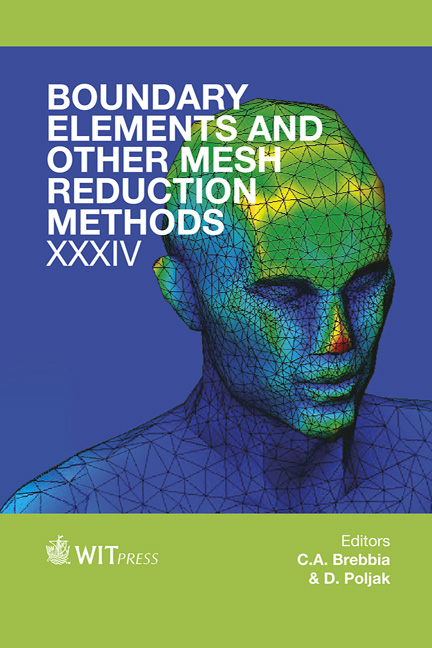Meshless Solution Of 2D And 3D Stokes Flow Using The Radial Basis Integral Equation Method
Price
Free (open access)
Transaction
Volume
53
Pages
9
Page Range
73 - 81
Published
2012
Size
403 kb
Paper DOI
10.2495/BE120071
Copyright
WIT Press
Author(s)
E. H. Ooi & V. Popov
Abstract
The calculation of boundary vorticity, which requires the evaluation of the spatial derivatives of the velocity vector, remains a critical step when solving the fluid flow problems in the velocity-vorticity formulation. An accurate estimation of these quantities is required in order to obtain accurate numerical solution and convergence of the numerical scheme. The radial basis integral equation (RBIE) method is a meshless method that solves for each node the unknown potential and its spatial gradients. This unique feature of the RBIE makes it an efficient numerical tool for solving the fluid flow problems in the velocity-vorticity formulation, since the velocity derivatives are directly obtained from the system of equations. In this study, the efficiency of the RBIE for solving the Stokes flow problems in 2D and 3D is investigated. The accuracy of the numerical results was assessed by comparing it with the solutions obtained using the finite element method. Numerical results showed that the RBIE can be used to efficiently and accurately solve Stokes flow problems. Keywords: meshless methods, viscous flow, velocity-vorticity formulation, RBIE, dual reciprocity method. 1 Introduction One of the most important steps when solving Stokes flow problems in the velocity-vorticity formulation is the calculation of the boundary vorticity to be used as boundary conditions in the vorticity transport equation. An accurate estimation of the boundary vorticity not only yields an accurate numerical solution but guarantees convergence in the numerical scheme. The vorticity of a given velocity field is defined by the curl of the velocity vector. Consequently,
Keywords
meshless methods, viscous flow, velocity-vorticity formulation, RBIE, dual reciprocity method.





